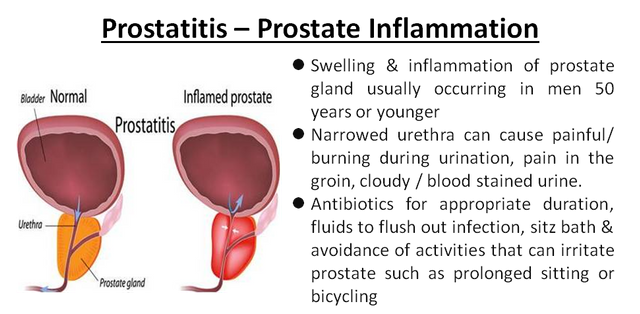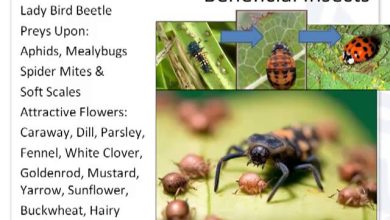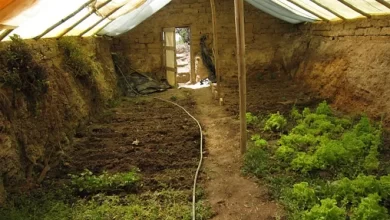Prostatitis: foods and medicinal plants for inflammation of the prostate

The prostate is the gland that produces seminal fluid and is part of the male reproductive system (specifically, it is located just below the bladder) and when it becomes inflamed, prostatitis occurs . It can occur frequently in young and middle-aged men.
Prostatitis is an infection that can be acute or chronic, its most common symptoms being the constant need to urinate, itching and difficulty urinating, painful ejaculation and even chills. Among the most common causes of acute prostatitis are sexual or sexual contagion. when conducting a medical examination. In chronic prostatitis, the causes can be other infections in the urinary tract or even poorly cured water prostatitis.
There are habits that favor the appearance and development of prostatitis, such as diets rich in fat, not drinking enough water, the consumption of dairy products, alcohol, products rich in sugar or constipation. Food is a very important part in the prevention and care of prostatitis, being foods rich in Zinc and Vitamin E , highly recommended due to their anti-inflammatory and anti-tumor properties.
Food and medicinal plants for prostatitis or inflammation of the prostate
* Alfalfa
Sprouted sprouts are especially beneficial for general health and to help prevent and fight prostatitis, in particular thanks to the isoflavones it contains. It is rich in vitamins A, C and E, so it is excellent, not only for the care of the prostate, but also to take care of the kidneys and the health of the bladder.
* Celery , figs , asparagus , eggplant , borage , peaches , almonds , sweet potatoes , papayas and cashews
All these foods have in common that they have excellent levels of zinc, which is highly beneficial for both the prevention and treatment of benign prostatic hyperplasia.
* Tomatoes
Their high glutathione and lycopene content make them excellent for caring for the prostate gland and preventing the development of cancer cells.
* Cabbage, Brussels sprouts or broccoli
Its richness in vitamin C, glucosinates, cysteine, sulforaphane and in general antioxidants and nutrients that protect against prostatitis and the development of tumors. It should be included at least once a day.
* Pumpkin and pumpkin or squash seeds :
Thanks to its carotene content, both pumpkin and its seeds are very important to prevent prostate growth and reduce the effects and symptoms of prostatitis. In addition, pumpkin or squash seeds are very beneficial to improve the functioning of the urinary tract .
* Nuts and green leafy vegetables
Both groups have excellent amounts of vitamin E and also nuts and seeds (such as flax or linseed) are an excellent source of beneficial fatty acids such as Omega 3, with walnuts and almonds standing out within this group .
* The Nettle ( Urtica dioica L. )
Nettle improves the functioning of the urinary tract and fights the symptoms of prostatitis, especially difficulty urinating. The fresh leaf can be consumed by including it in soups, purees, etc. or make an infusion with the dry or natural plant.
* Cat’s claw (Uncaria tomentosa)
It stimulates the immune system and makes the prostate shrink and deflate, especially when prostatitis is caused by a bacterial infection. It also reduces the annoying symptoms derived from prostatitis.
* The Sabal ( Sabal serrulata Roem. Et Schulz )
The date of this palm tree is a great natural remedy to treat prostate ailments. It is capable of regenerating prostate tissue and fighting infection. It has also proven to be a very effective remedy for benign prostate hyperplasia or an enlarged prostate gland . It also reduces symptoms such as scanty and irregular urine flow, painful urination and the need to do so constantly. You can take advantage of its medicinal properties by eating dates or taking it in tincture.

![Photo of Continental Climate: [Characteristics, Flora, Fauna and Adaptability]](https://www.complete-gardening.com/wp-content/uploads/2022/08/continental-climate-characteristics-flora-fauna-and-adaptability-390x220.jpg)


